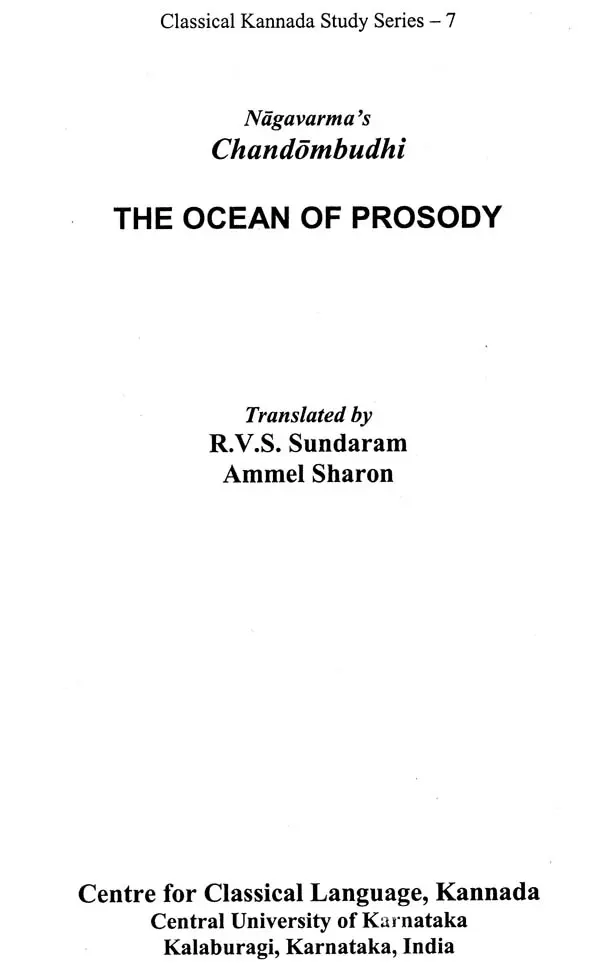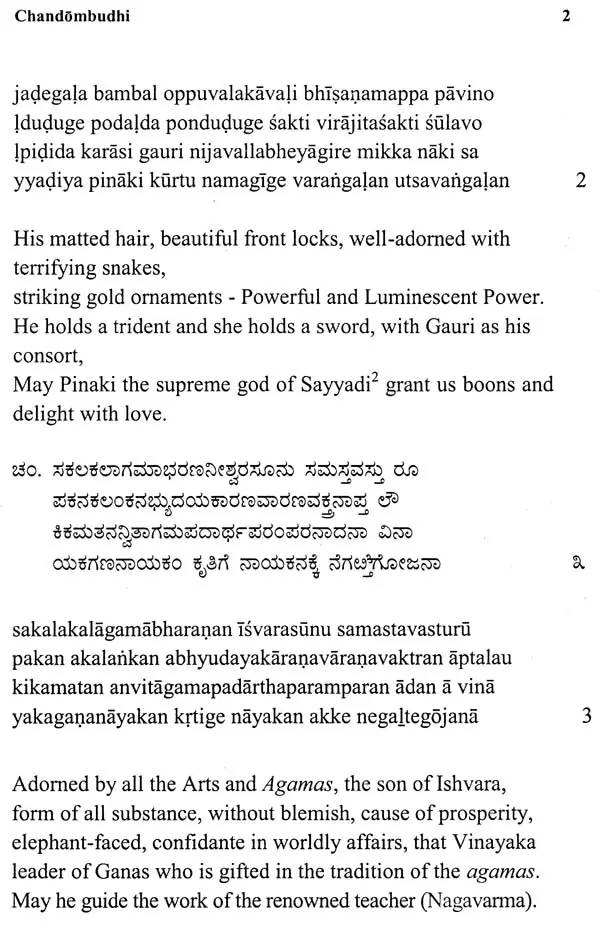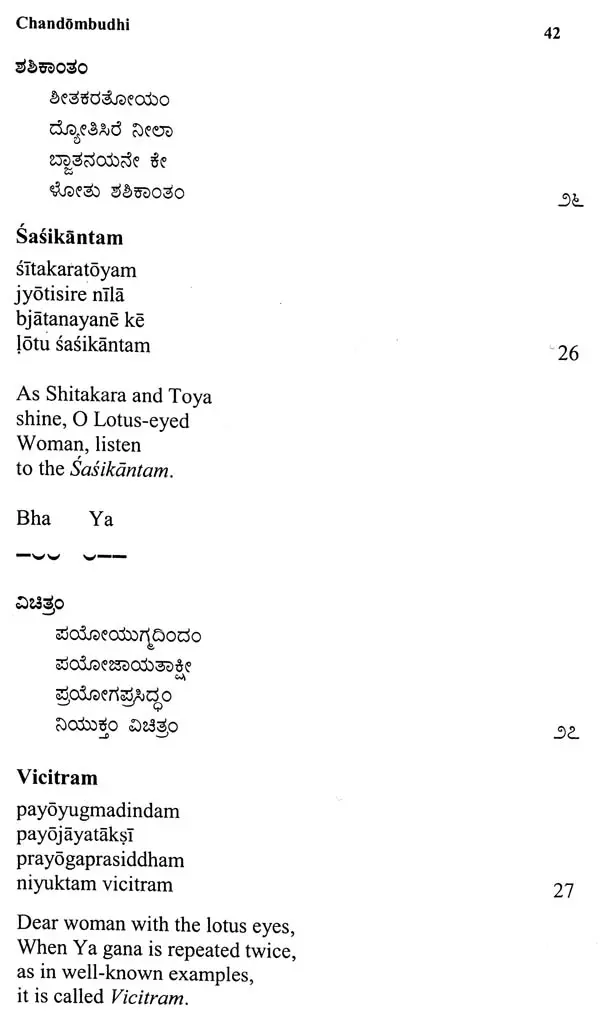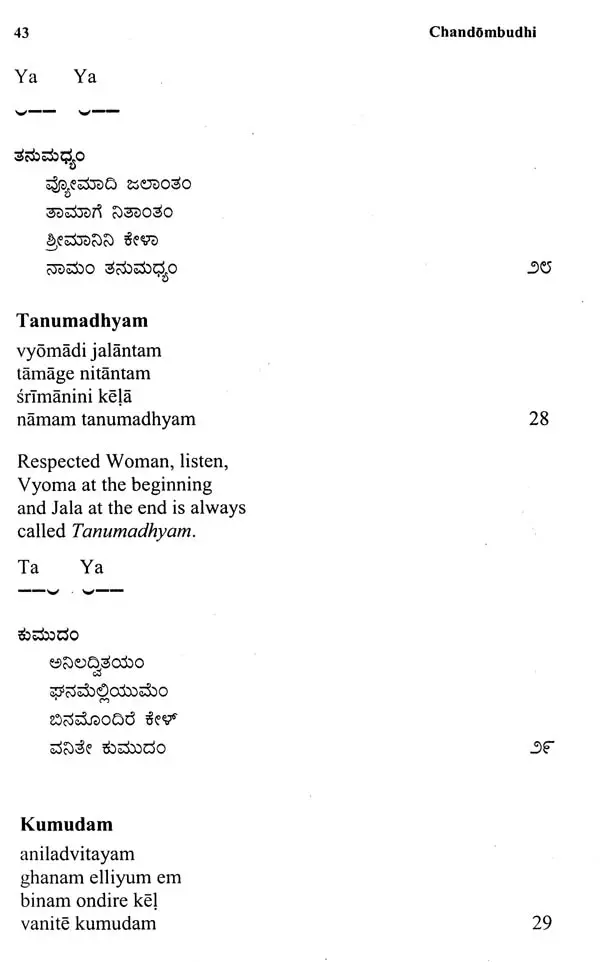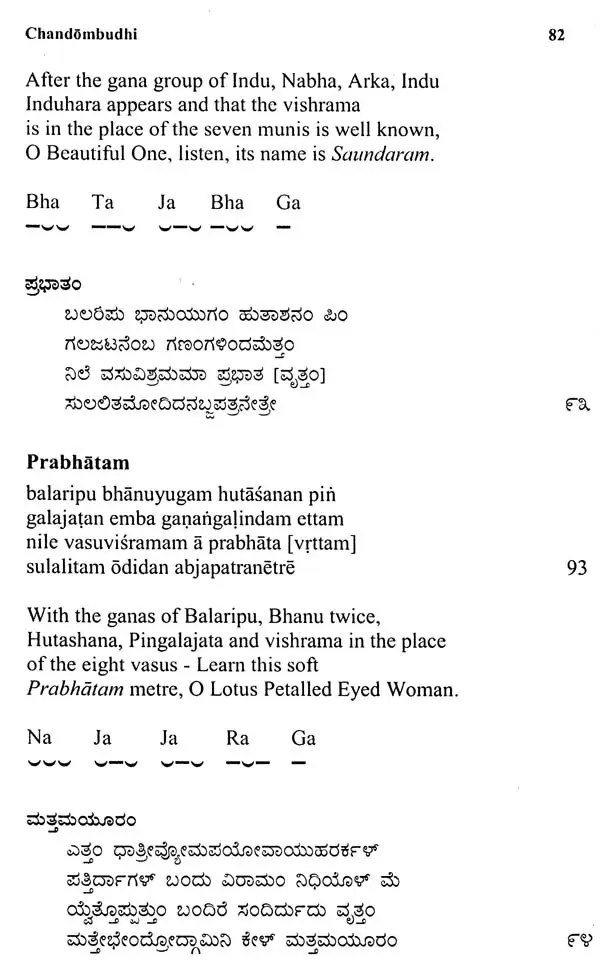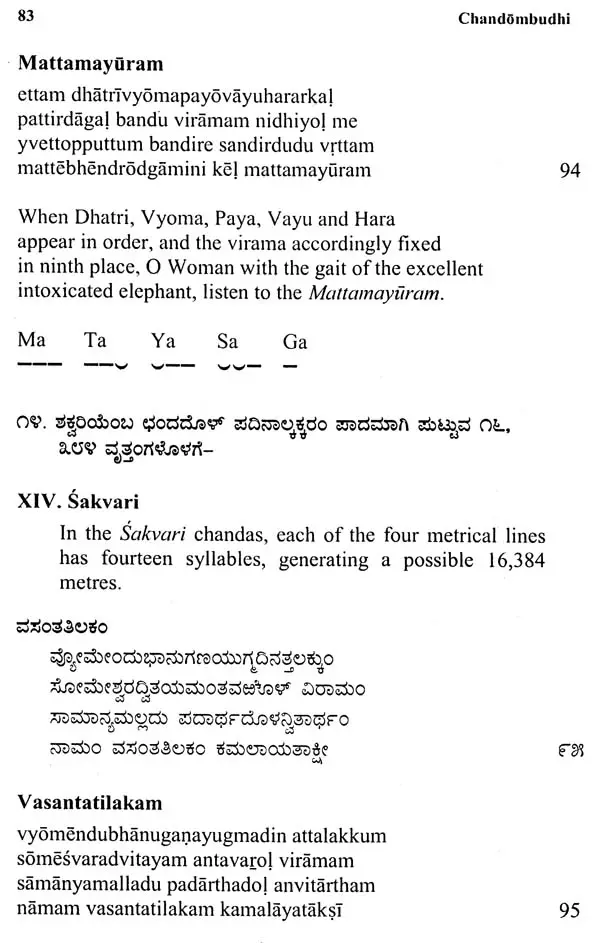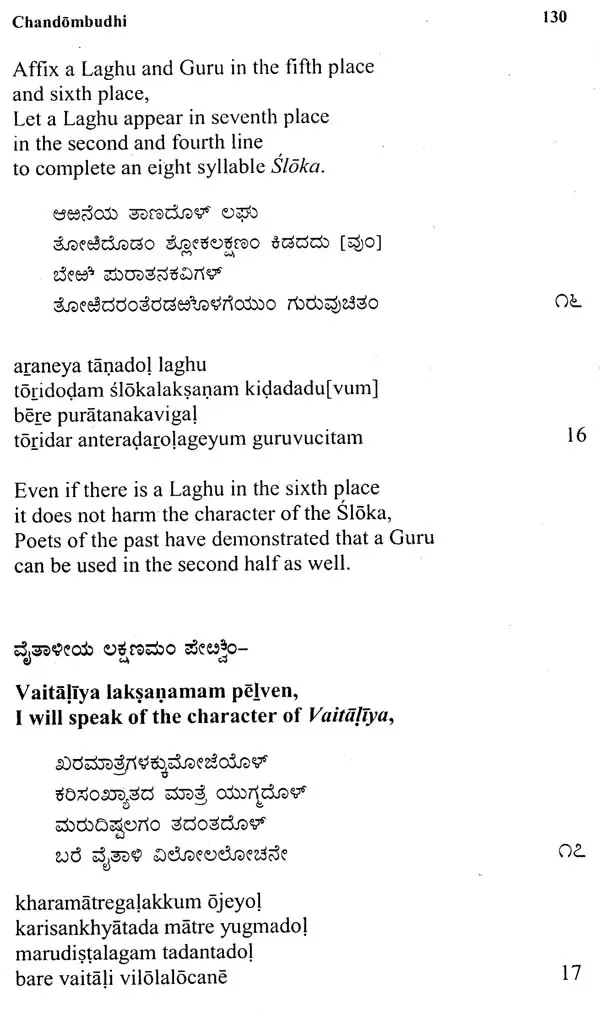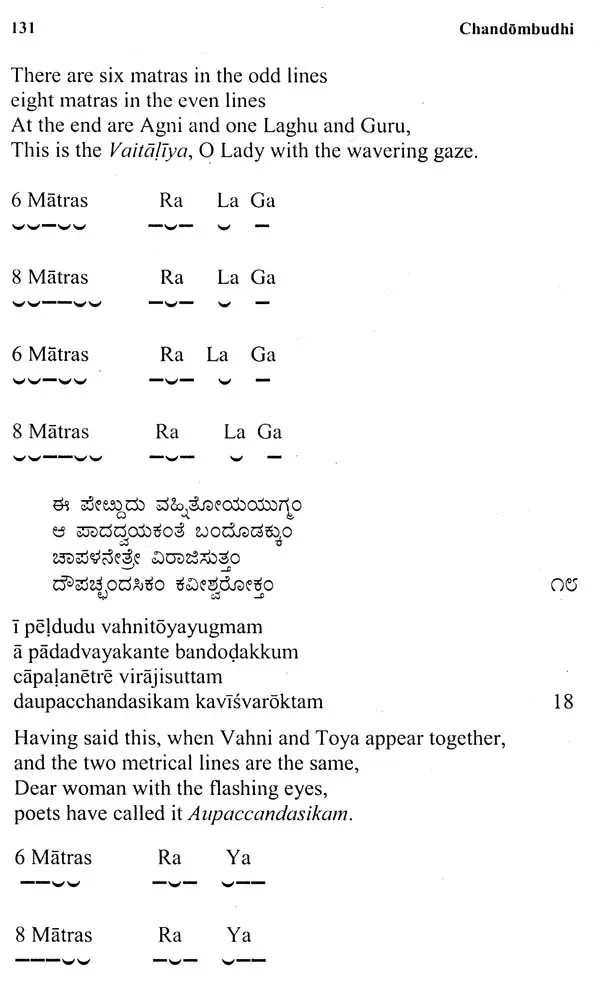
The Ocean of Prosody
Book Specification
| Item Code: | UAH774 |
| Author: | R. V. S. Sundaran and Ammel Sharon |
| Publisher: | Central University of Karnataka |
| Language: | English |
| Edition: | 2020 |
| Pages: | 200 |
| Cover: | PAPERBACK |
| Other Details | 8.50 X 5.50 inch |
| Weight | 270 gm |
Book Description
Ammel Sharon has translated a medieval Kannada epic, Ranna's Gadayuddham, with R.V.S. Sundaram as The Duel of the Maces (JNU and Manohar, 2018 and Routledge, 2021). She holds an M.Phil. Degree from the Centre for Studies in Social Sciences, Calcutta where she is pursuing her PhD.
The Centre is pleased to publish the English translation of Nagavarma's Chandombudhi, the earliest treatise on Kannada Prosody. It is an excellent classical text in Kannada and continues to be a text book for students of Kannada language and literature. This translation is expected to extend the vistas of knowledge prevalent in Kannada.
Professor R.V.S. Sundaram is engaged in the commendable task of translating classical Kannada texts into English. Sundaram and Ammel Sharon have already published an English translation of Ranna's great epic, Gadayuddham. Now, they have taken the responsibility of introducing this important text to the world.
I am pleased to make this text available on behalf of the Centre for Classical Language - Kannada. I am sure that it will receive the appreciation of scholars and students interested in classical studies.
The pleasure of rhythm lies in its repetition of accents in sequence. The Sanskrit word for prosody is chandas which derives from a root that means pleasure. The text we have translated, Chandombudhi or the Ocean of Prosody, is written within metrical traditions that span Sanskrit, Prakrit, Apabhramsa and many regional languages. Indeed, the title of the work recalls the seventh century Sanskrit poet, Dandin, who said,
Metre is a veritable ship,
for those who want to go,
across the vast ocean of poetry (Kavyādarśa, 1.12)
The earliest work in this tradition is by Pingala in Sanskrit, whom our poet Navavarma also acknowledges. Kannada Chandas borrows some metrical structure and creates some of its own.
Book's Contents and Sample Pages
